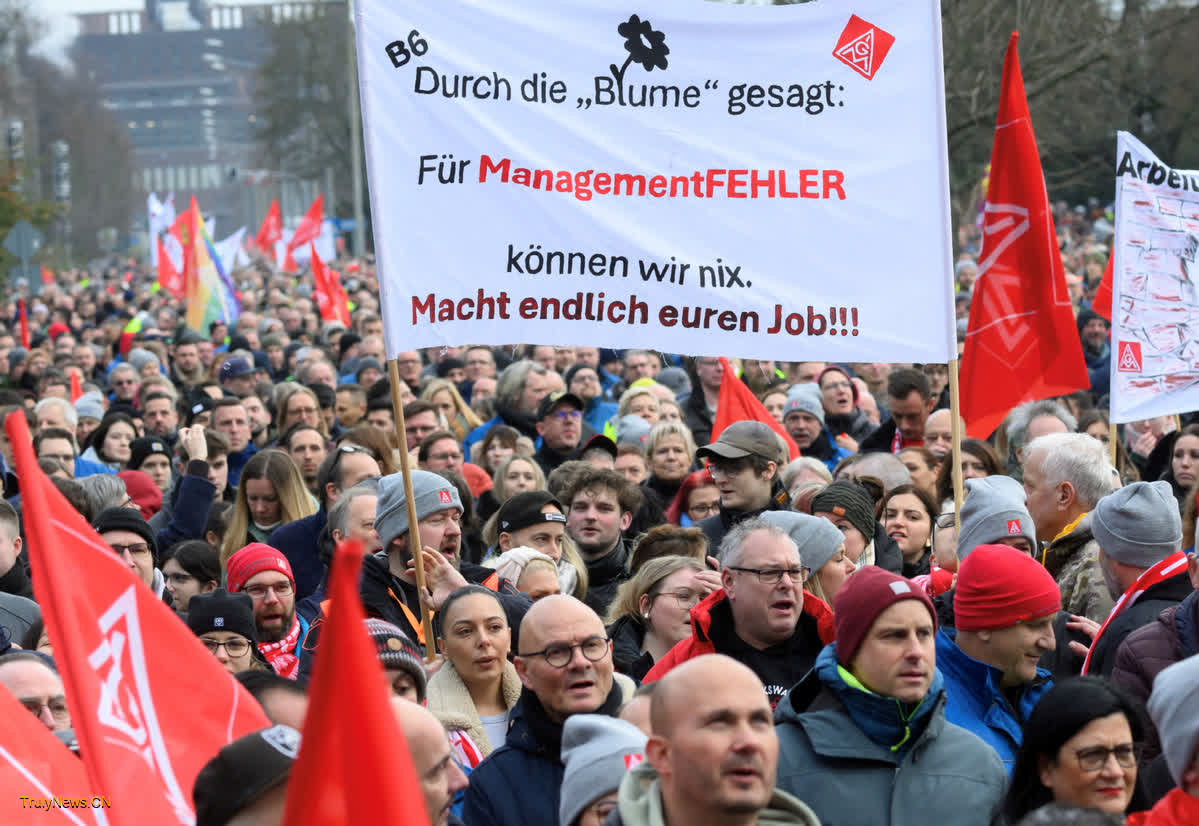
A survey released on Thursday showed consumer confidence in Germany is projected to improve slightly in early 2025, though overall sentiment remains subdued due to ongoing concerns about elevated food and energy costs, along with employment uncertainties.
The consumer sentiment index, published by German market research company GfK and the Nuremberg Institute for Market Decisions, or NIM, revealed an unexpected improvement, climbing to — 21.3 points for January, from December’s revised figure of-23.1 points.
The GfK index predicts consumer spending trends for the coming month, with readings below zero indicating a decline in private consumption compared to the previous year. Each point change in the indicator represents a shift of 0.1 percent in consumer spending.
While the reading exceeded analysts’ expectations of — 22.5, GfK noted that this improvement only partially offset previous declines, with sentiment remaining at a very low level amid stagnation dating back to mid-year, reported Reuters.
“A sustained recovery in consumer sentiment is not yet in sight, as consumer uncertainty is still too high. The main reason is high food and energy prices,” said NIM analyst Rolf Buerkl. “In addition, concerns about job security are growing in many sectors.”
According to the latest monthly survey from Munich’s ifo Institute, a leading German economic research organization, business confidence has deteriorated more than expected this month.
Adding to the gloomy outlook, major corporations, including Volkswagen, have implemented production cuts and cost-reduction measures, sparking concerns about potential job cuts.
A February snap election brings further uncertainty at a time when Europe’s largest economy faces the prospect of a second straight year of economic decline in 2024, with growth rates trailing other eurozone nations.
A separate survey released on Thursday by Germany’s Chamber of Commerce and Industry, or DIHK, revealed that fewer companies are struggling with labor shortages compared to last year, with 43 percent of enterprises reporting hiring difficulties, down from 50 percent in 2022.
While the weakening economy is dampening overall employment demand, with unemployment rising to 2.86 million in November and forecast to reach 6 percent in 2024, from 5.7 percent in 2023, the DIHK report highlights that skilled worker shortages remain a persistent issue.
Many companies continue to face difficulties finding suitable employees due to a qualification mismatch between available workers and job requirements, according to the report.
Germany’s parliament ended former chancellor Olaf Scholz’s coalition through a no-confidence vote on Monday, setting the stage for a Feb 23 election. The coalition collapsed last month when the pro-market Free Democratic Party withdrew over a debt dispute, leaving Scholz’s Social Democratic Party, or SPD, and the Green Party without a parliamentary majority.
Recent opinion polls show the center-right Christian Democratic Union/Christian Social Union, or CDU/CSU, alliance maintaining a 10-point lead over Scholz’s SPD, which ranks behind both the CDU/CSU and the far-right Alternative for Germany with the Greens in fourth place.
jonathan@mail.chinadailyuk.com